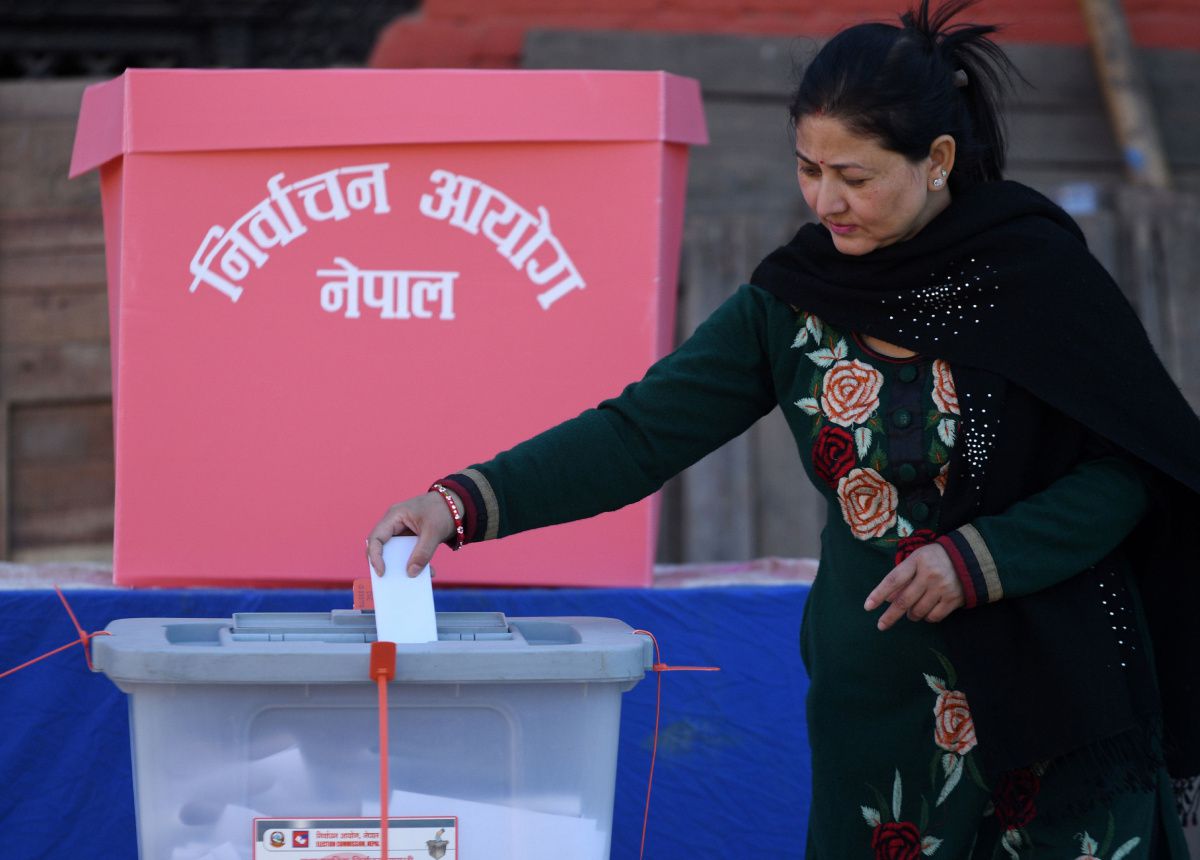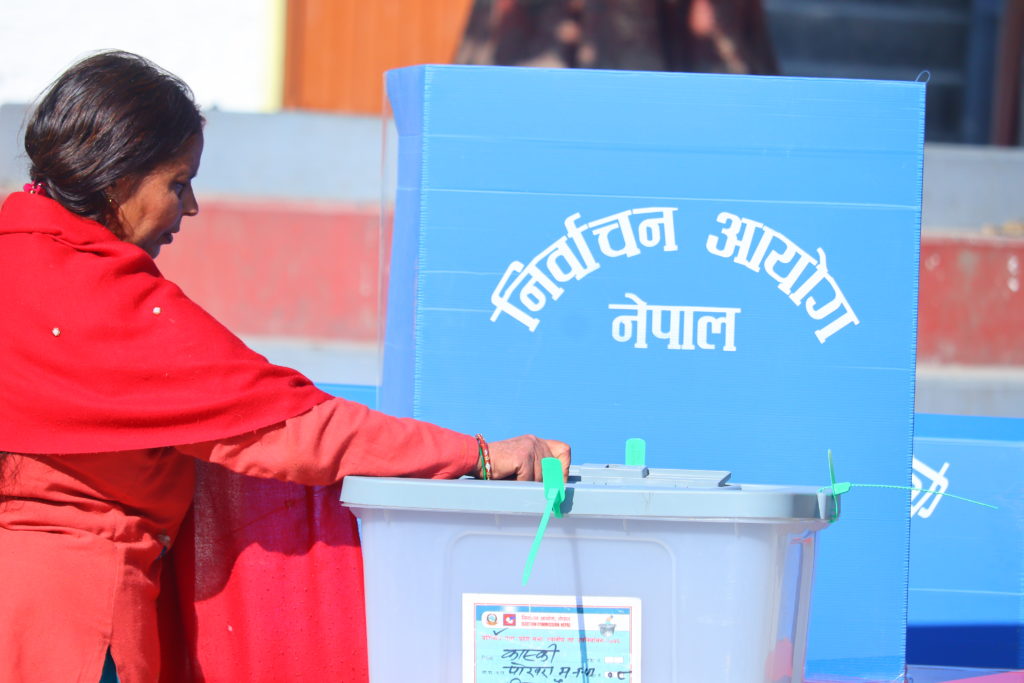Preparations for Nepal National Assembly elections have now begun
Preparations for the 2022 Nepalese National Assembly elections which are scheduled to take place on January 26 have started. The elections will be electing 19 of the 20 retiring Class II members of the National Assembly.
In a meeting which was conducted January 3, the ruling coalition decided on seat-sharing for the National Assembly (NA) election. A Nepali Congress leader said that preparations for the elections are happening in full swing and the party is yet to choose its candidates. Members of the National Assembly are elected through the indirect ballot and they serve six-year terms with one-third of the members retiring every two years. Accordingly, arrangements are made by drawing lots to retire one-third of the members on the expiry of two years, another one-third on the expiry of four years, and the final one-third on the expiry of six years.
The Election Commission has planned the elections for the posts turning vacant with 20 members completing their four-year term in the first week of March.
Therefore, the Commission has announced the schedule for publication of the final voter list and registration of nomination papers on January 3 and 4. Elections are being held for 19 members in the National Assembly. The elections which are being held for 19 posts will include women, Dalits, persons with disabilities or minorities and others. Of them, seven women, three Dalits, two disabled and seven others will be elected.
Electronic voting machines will be implemented in the coming Nepal Election
National Election Commission has announced that it will implement electronic voting machines for the much-anticipated local elections. Also called e-voting, the digital system has been implemented in the party’s general conventions but now the federal level voting will make use of electronic machines instead of the ballot paper.
But it won’t be a large-scale affair. The Commissioner of NEC Dinesh Thapaliya says a few local bodies in the valley will implement the voting machines. The commissioner says the commission is taking notes on making the voting system more techno-friendly. But due to the short time available, it is not possible to import machines for use. This is the reason the commission will use the voting machines developed in Nepal. One local company would prepare around 1500 – 2000 voting machines for the local elections meaning around 3 lakh voters could cast their votes electronically. But there are plans to ‘go digital’ in other local levels beyond the valley too. The government has announced that the local polls will take place on Baisakh 30 through 753 on a single day. Meanwhile, the election commission has forwarded a request to NTA to connect all those local bodies by internet before the election day.
Can Digital technology improve Nepal’s elections?

The Nepal government’s attempt to consider adopting digital technology in elections is undoubtedly worthy of recognition. Considering the continuous situation of COVID-19 epidemic, electronic election is an important auxiliary means to promote democratic development worldwide in the future. In addition to improving efficiency, electronic election can also bring benefits to election managers, such as reducing management costs and optimizing election management; In particular, for voters, electronic election provides more diversified voting means. Therefore, from a long-term perspective, the application of election technology in Nepal is just the right time.
However, whether the electronic election equipment currently used in Nepal can truly provide voters with diversified means to participate (such as how to apply electronic technology to special voting arrangements) deserves our continuous attention.
At present, most democracies are actively thinking about the solution of special voting (absentee voting) in elections.Absentee voting is granting voting right to eligible voters who are temporarily absent from his /her constituency in any election. It is a privilege granted to voters living out of their home country. The issue of overseas absentee voting is likely to give rise to political controversy.
How to judge whether a country should consider special voting arrangements? Integelec takes the stand that the size of population living abroad, economic remittance sent from them and domestic political competition are considered as main factors which oblige a state to introduce absentee voting system.
Nepal has a considerable number of overseas citizens, and this part of voters has brought considerable contributions to the national economy. In addition, due to the impact of the epidemic, the protection of voting rights of disabled voters, voters in hospital and voters in custody is a difficult problem for electoral departments in all the countries.
At present, the centralized counting scheme specially created by Integelec for overseas referendum can provide a solution to the above problems. Centralized counting scheme relies on high-speed visual recognition technology, which can quickly and accurately process overseas mailed votes and domestic mailed votes in a short time, and has a bright performance in the election. Check the following list for your quick references: https://www.integelection.com/solutions/central-counting-optical-scan/
Post time: 08-04-22






